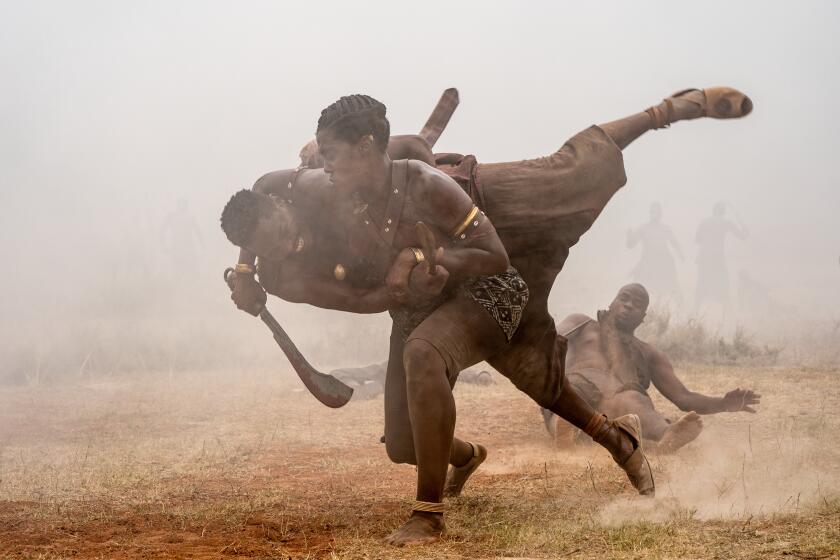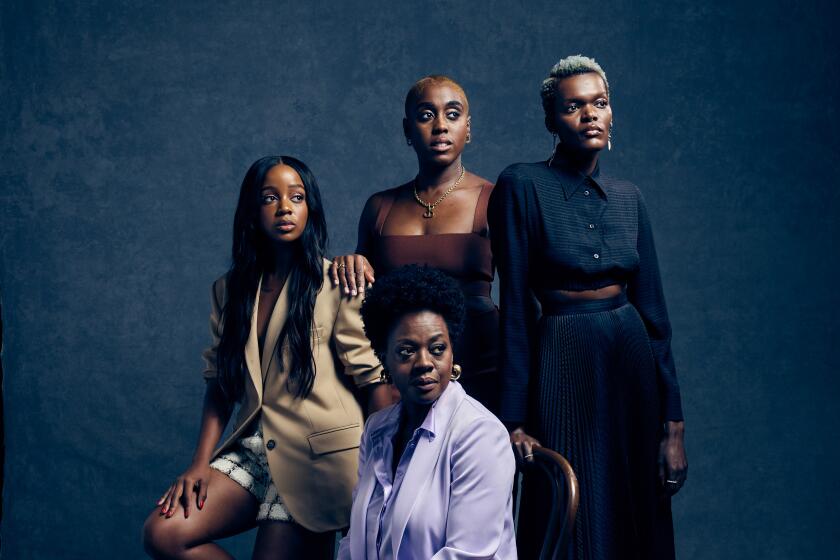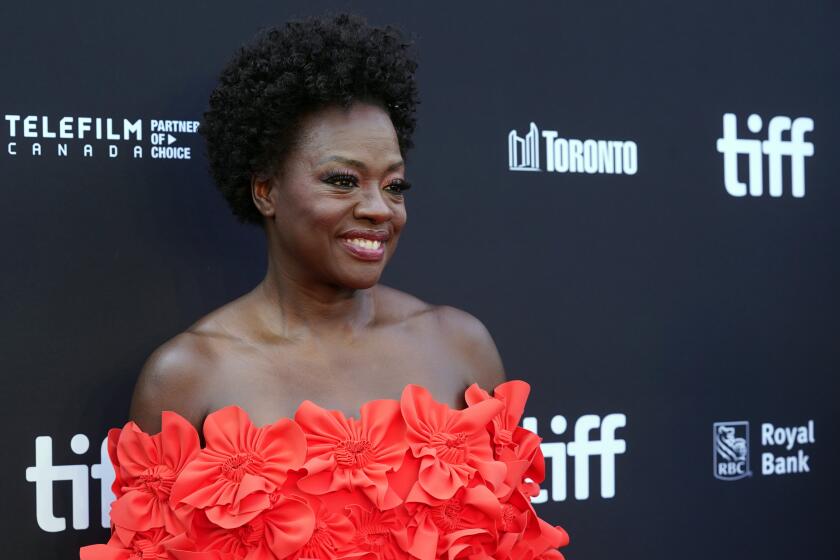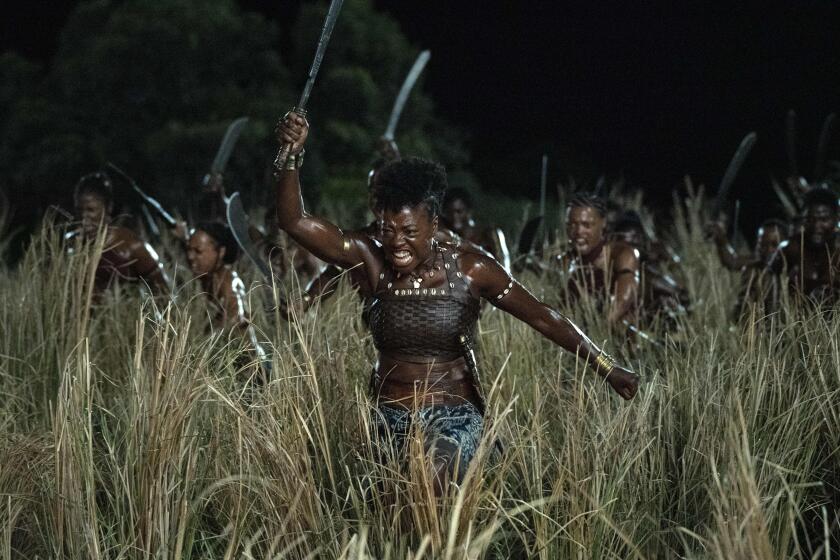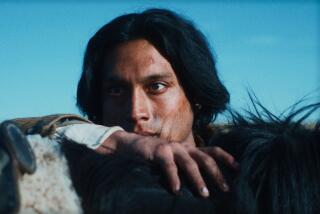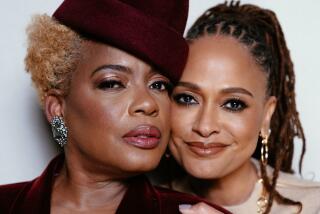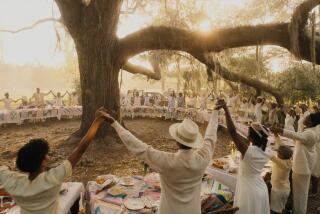The truth behind ‘The Woman King’: Crew responds to claims of historical revisionism
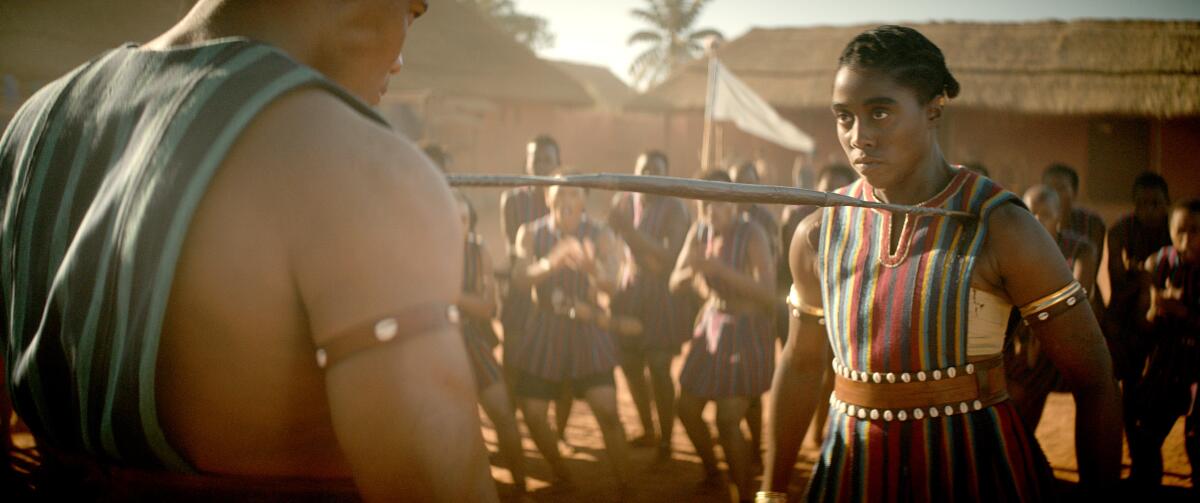
There’s a quote often attributed to Winston Churchill that asserts history is written by the victors.
This idea is what has allowed American students to be universally taught that Christopher Columbus “found” America, despite the millions of people already living here when he arrived. It’s allowed Black Americans to be taught that their history begins with the onset of chattel slavery. It’s what makes it so hard for people to shed unconscious biases and allow for new perspectives to add color to things they previously took as fact.
Gina Prince-Bythewood’s “The Woman King” explores the 1823 conflict between the African kingdom of Dahomey, with its all-female military force, the Agojie, and the wealthy, Western-influenced Oyo Empire. Despite its critical and commercial success — and despite relatively few reputable sources online offering information about the time period and location in which the film is set — a small faction of people on social media have accused the film of historical revisionism.
“My issue is that the history that they think we are revising, they are actually parroting incorrectly,” said Prince-Bythewood of the “manufactured conspiracies and conflicts” that circulate online. “And there’s a great irony in that, a great sadness. Literally, you’re speaking on something that you actually don’t really know the truth about, and it feels like you’re doing the work of the oppressor.”
‘The Woman King,’ directed by Gina Prince-Bythewood and starring Viola Davis, builds a dramatic epic around the real-life women who inspired ‘Black Panther’s Dora Milaje.
The director did a deep dive into research about Dahomey and the Agojie alongside production designer Akin McKenzie before reaching out to historical consultant Leonard Wantchekon, who is directly related to a member of the Agojie. She found that much of the information written about the kingdom was from the perspective of European colonizers.
“When we started doing the deep dive into the research, we realized the history of these women and Dahomey was being written from the oppressor’s point of view,” she said. “We found Leonard through a Washington Post article that had come out [where he said] if a movie had ever been made, he would love to make sure that the humanity of these women were shown and not just this stereotypical ‘Black Amazons’ [narrative], which was Western terminology. What Leonard brought, which we should all want, is history told in the right way from those who lived it as opposed to those who had an absolute desire to dehumanize us and falsify history.”
Wantchekon, a professor of politics and international affairs at Princeton University, was born in the Beninese city of Zagnanado, where Dahomey’s King Ghezo died, 25 miles away from Abomey, the capital city. “The training camp of the Agojie was one mile from my hometown,” he said. “And the son of Ghezo, King Glele, actually had his palace 1.5 miles from where I was born.”
He has written several articles for leading academic journals including “The Slave Trade and the Origins of Mistrust in Africa,” which he co-wrote with Nathan Nunn for the American Economic Review in 2011. He has also written a book about Dahomey’s Port of Ouidah and is currently working on a compilation of biographies of more than 50 members of the Agojie.
It’s a misconception that Dahomey was nothing other than a state involved in the slave trade. It’s a narrative built by Europeans to present the state as barbaric.
— Leonard Wantchekon, historical consultant on “The Woman King”
“It’s a misconception that Dahomey was nothing other than a state involved in the slave trade,” said Wantchekon. “It’s a narrative built by Europeans to present the state as barbaric. But at the same time, [primary sources detail] how respectful and sometimes scared they were about Dahomey. For instance, if you read the correspondence between King Glele and [Otto von] Bismarck, it was highly respectful. But maybe because it was such a highly respected kingdom, they were not well-liked by Europeans presenting themselves as the saviors of Africa. But tens of thousands of freed slaves from Brazil returned in the mid-19th century. They had to believe in that place for them to come back.”
“Where Dahomey was at that time, the crossroads that Ghezo was facing, the Oyo-versus-Dahomey battle, all of that is truthful and real and what the Agojie were fighting for,” said Prince-Bythewood. “It is not a documentary, but absolutely there’s a tremendous amount of truth within this. When you look up [Dahomey and the Agojie] you’ll see that there’s only one book on it and it’s a book that’s offensive. I just remember what happened [following the release of] ‘Selma,’ ‘Braveheart’ and ‘300.’ There’s a celebration and then there’s a small minority screaming about historical accuracy.”
It feels like a litmus test that nobody can really pass the way that it’s being deployed on places like Twitter.
— Racquel Gates on criticisms of “historical accuracy” in films
“As a film scholar, it really strikes me when these types of faux concerns get deployed,” said Racquel Gates, an associate professor of film and media studies at Columbia University. “Film is not a window into reality. In some ways it can be a mirror. You’re translating a real-life story into something that has to be cinematically legible, and it’s interesting that we accept that with so many other types of films: Disney can’t literally adapt ‘Grimms’ Fairy Tales,’ those would be some really horribly depressing films. ‘Goodfellas’ doesn’t tell the entirety of Henry Hill’s life, it has to end at a point because there’s a story. It’s about translating the ideas, not translating the words in a literal way. It feels like a litmus test that nobody can really pass the way that it’s being deployed on places like Twitter.”
“It’s maybe [the first time] ever that we have seen Africa being represented in such a positive way on the [big] screen, at the highest level,” said Wantchekon. “Nobody will deny that Dahomey was involved in the slave trade. But according to recent data, it accounted for roughly 3.5% of the trade, far less than Lagos, Ghana and Angola. So it’s important to put that in perspective.”
‘The Woman King’ stars Viola Davis, Lashana Lynch, Thuso Mbedu and Sheila Atim as an elite team of all-female warriors from 19th century western Africa.
“In the mid-19th century, there was a very robust opposition to continue in the slave trade [in Dahomey],” he added. “Europeans tend to write a lot on how the British government tried to stop the trade but not enough on the opposition and the movement from [within Africa]. If you take the Agojie for example, many of them were [former] captives. So when they rose into positions of power, they would [obviously] push the government and the king away [from participating in the slave trade]. The king before Ghezo, Adandozan, is known to have expressed opposition [as well].
“We are talking about a specific time [in history], 1823. We’re not talking about 1750 or 1870. Clearly, there was one thing on the mind of the king and the whole country, which was the Oyo Empire and how do you liberate yourself from economic dependence and having to pay tribute? That was the focus. This movie is not about the whole history of Dahomey, it is about a specific time where all the stars were aligned against continuing the slave trade. And the data from slave exports during that time, the politics and the conflict in place all show that this was happening.”
This is the first film focusing on Black women in these positions of power ... and it’s not lost on me that there will be those that would actually denigrate this or try to bring this down.
— Gina Prince-Bythewood, director of “The Woman King”
“I don’t think you should ever fabricate the truth,” said Prince-Bythewood. “What we are showing is authenticity in who these women were and what the society was. We are dealing with things that were beautiful about the kingdom and things that they were needing to correct. It is a little tough given this is the first film focusing on Black women in these positions of power and beauty and grandeur and royalty, and it’s not lost on me that there will be those that would actually denigrate this or try to bring this down.”
“What is the goal of film?” said Gates. “Is it to educate? Is it to portray history or is it to capture themes and the spirit of issues facing the human condition? I’ve seen plenty of films that deal with the civil rights movement, slavery, where the filmmaker, the screenwriter will find that one random white person who was kind of sort of around and design the entire film around them as the hero and the protagonist.
Star Viola Davis says, “You’re not going to win an argument on Twitter,” in response to backlash against her movie “The Woman King.”
“Now, is that historically accurate? I guess that white dude was around. Are you translating the spirit of the civil rights movement when you do that? No, you’re actually doing something incredibly offensive by centering whiteness in a story that is supposed to be about Blackness and about Black liberation. And so my question is, you throw historical inaccuracy out there, like you back it up. What do you think this film is doing that you find offensive?
“What are the stories and the ways that stories get told that we as viewers have been trained and are comfortable in? And what are the things that feel foreign to us? I just find it really fitting that in an era where Hollywood is dominated by superhero movies, that suddenly when you have Black women in those positions, there’s something about that that seems to be bothering people. ... I think some people can’t even fully put their finger on what it is that is bothering them about it.”
Directed by Gina Prince-Bythewood and starring Viola Davis, “The Woman King” tells the rousing story of the female warriors of the African kingdom of Dahomey.
More to Read
Only good movies
Get the Indie Focus newsletter, Mark Olsen's weekly guide to the world of cinema.
You may occasionally receive promotional content from the Los Angeles Times.
